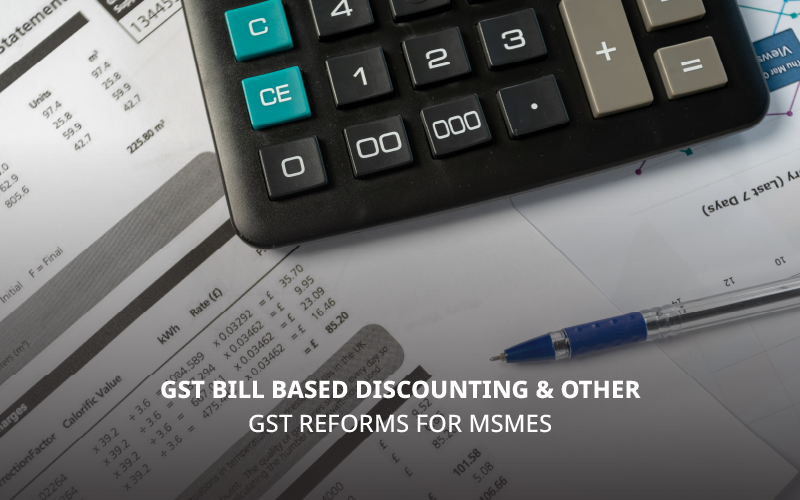The Government and top economists in the country have zeroed in on a decision to make GST based bill discounting a reality.
And in other good news, GST collection in India rose by 6% to INR 1.03 lakh crore in November, reversing two months of decline. Experts state that the sudden spike could be due to increased festive shopping by customers and easier compliance.
So, the question arises: –
Why is there a need for GST based bill discounting?
According to experts at SKOCH India Economic Forum, the decision to reinforce a Goods and Service (GST) based bill discounting backed by Government guarantee fund can provide immediate relief to Micro Small and Medium Enterprises (MSMEs) struggling with credit issues.
One of the key challenges MSMEs face today is easy to access to credit. Bill discounting takes care of this issue by acting as a surefire credit guarantee.
MSMEs facing a working capital shortage can avail cash instantly with bill discounting. GST based Bill discounting permits a business to run without funds.
“Credit to MSMEs is a huge problem and the biggest roadblock in the success story of our promising MSME sector. ” – Sameer Kochhar, Chairman, SKOCH Indian Economic Forum. To understand this, let us see how GST based bill discounting works.
How does bill discounting work?
With bill discounting, a bank collects a fee from the business in order to release money before the credit period terminates.
Once you accept the invoice from the buyer, you can approach the financing company to discount it. The financing company assures itself of the legitimacy of the bill and creditworthiness of the buyer. Your business gets the funds and can use it as working capital finance. On the due date of payment, the bank/financial institution collects the money from the supplier ( whoever owes you the money).
Other GST Measures:
The Government and GST Council introduced several other measures over the year, to ease GST filing for businesses. This led to a growth of 12% in GST collections for domestic transactions, the highest during the year. What other measures led to this rise? This is what your business needs to know:
- Uploading invoices on a real-time basis: A mechanism for the continuous upload of revenue invoices on a real-time basis
-
The implementation of anti-evasion measures such as investigation on identified malpractices by MNCs to avoid GST payments and the recently implemented restriction on availing unmatched credits.
- Amendment returns: Allowing GST payers a chance to file GST returns again incase of incomplete GST invoicing by suppliers. The Government is, however, moving to remove any penalties that GST payers might have to bear if their customers have not paid their taxes.
- Input Tax Credit Claim: Along with the new Under the new return filing system, an Input tax credit can be claimed based on invoices uploaded by the supplier. Previously, once a supplier uploads an invoice, businesses just had to self-declare ITC. With the new reform, once the supplier uploads the invoice to the GST network, your small business can accept, reject or mark the invoice as pending. Once the buyer accepts, Income Tax Credit will get credited to the recipient (in this case, your business).
Is your business new to the complicated and dynamic world of GST? We have a FREE course to help you understand the basics of GST for your business! All you need to do is register on mojoVersity – our premier e-learning website for small businesses only.
UNLOCK YOUR GST CERTIFICATE HERE


2 comments
I did not know that GST has so many benefits. I was wondering it as a worst move by the government. Dear Chetna, you have provided an excellent outlook about the GST and how it helps the MSME’s. Thanks for sharing informative blog. Good job.
hi very good article thanks for sharing keep up good work